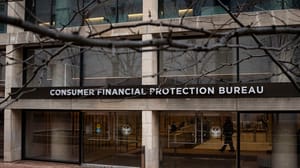Stay Together as a Family Enterprise or Separate?Stay Together as a Family Enterprise or Separate?
Figure out if sharing assets still makes sense.

In the back of his mind, your client may be asking this question about the family enterprise: Should we continue managing our wealth, business or philanthropy together at this point or should we go our separate ways? Many members of families that share assets must face this question at some point, though far too often, they wait until they’re forced to face this, such as when a conflict or crisis hits.
A key challenge with legacy assets is that the group sharing those assets rarely chose to do so with purpose, in contrast to a non-family partnership. Goals and values within the group may be aligned and they may share great affinity for one another. Or not.
This uncertainty increases the risks of sharing. Yet it’s also true that the rewards of being able to share assets and opportunity together as a connected family, in a productive and purposeful way, can be extraordinarily meaningful and impactful.
This risk versus reward context introduces two key questions to examine this topic:
Does sharing assets enhance or detract from being family?
Are we still family without shared assets?
Your Client’s Legacy: Gift or Curse?
Legacy can give clients a powerful sense of membership in a tribe or interfere with personal agendas and create unwanted conflict. Families that share significant assets sometimes feel they have certain expectations and responsibilities: Certain behavior, attendance and participation at events, individual compromise for the sake of the family and a host of legal and fiduciary responsibilities. Families of true affinity find these complications easier to embrace and help one another navigate through life with them.
But when “family” devolves into being about obligation and frustration over differences, family members may begin to question if it’s only their shared assets that unite them as a family. The benefits of being a “100-year connected family” may seem elusive or not important anymore.
A Practical Test for Family Affinity
Evaluating the family’s level of family-ness can provide useful insights to help your client productively work with existing differences or determine if it would be better to separate. We call this family-ness the “Family Factor,” and your client can begin to examine it in the family by asking:
Is our family bond strong enough to leverage compromise, forgiveness and commitment to change? This question describes the key elements required for family members to manage conflict. If they can do this well, they’ve got more choices to figure out on how to be a family together and how to successfully manage shared assets.
The Family Factor framework helps families gauge their family “glue.” When that glue is strong, families can derive great benefit from navigating the challenges of shared wealth together. That shared journey can become an opportunity for growth and enrichment.
When that glue is weak, clashing over shared assets and competing interests without resolution can erode connections or, even worse, interfere with what remains of the vision of “family.”
Understanding Family Factor gives clarity to discussions about what boundaries and bridges need to be built for the shared family enterprise to succeed.
To better understand the Family Factor, consider its three components: shared history, shared visions and trust.
Does your family have a distinct and meaningful shared history? Shared history doesn’t even necessarily mean a positive history; it just means shared experience. If the family has a meaningful shared history, they’ll have something to lose if they disband and stop seeing themselves as a group. When a client’s family can construct a shared narrative that provides meaning and value—even out of difficulty—they can build on shared history, which can lead to finding the family within.
Does your family have a shared vision of being family in the future? Do family members value identifying as family in the future? Or holding shared events? Or when the matriarch or patriarch passes, will your client’s Family Factor quickly dissolve? If the family sees value in being a connected family in the future, then family members have something to gain by compromising, forgiving, or learning to change to secure that future.
The challenging work of sharing assets can play a role in strengthening these relationships. This vision of future connectedness is a powerful motivator for working things out to make decisions together.
Do your family members know each other well? Trust? In his work on life stages, psychologist Erik Erikson defined “trust” as predictability. A sense of predictability is a key component of trust that factors into your evaluation.
Families can create tough environments—especially when there are shared assets, shared decision-making and power hierarchies. Interests and values collide and often set individuals against one another. So rather than defining trust as we usually do—as aligned interests or affinity—consider trust simply as predictability.
Finding Value in the Family Bond
When anger, incompatible values and conflict damage relationships, it’s sometimes difficult to see the value in maintaining a family bond. When family members or branches of the family have significantly different interests and values, made worse by disagreements and distance, it can be easy to assume that splitting up assets and associated family ties is the next logical step.
Reframing the question to the broader or generational question of family vision and considering the impact of shared history and trust, can often help families see beyond current relationship challenges to figure out if their Family Factor is strong enough to benefit from sharing assets or whether separating assets is what actually will protect their vision of family for the future.
A more in-depth version of this piece will appear in the book, Wealth of Wisdom: The Top 50 Questions Wealthy Families Ask, by Tom McCullough and Keith Whitaker, released this December.
About the Author
You May Also Like







